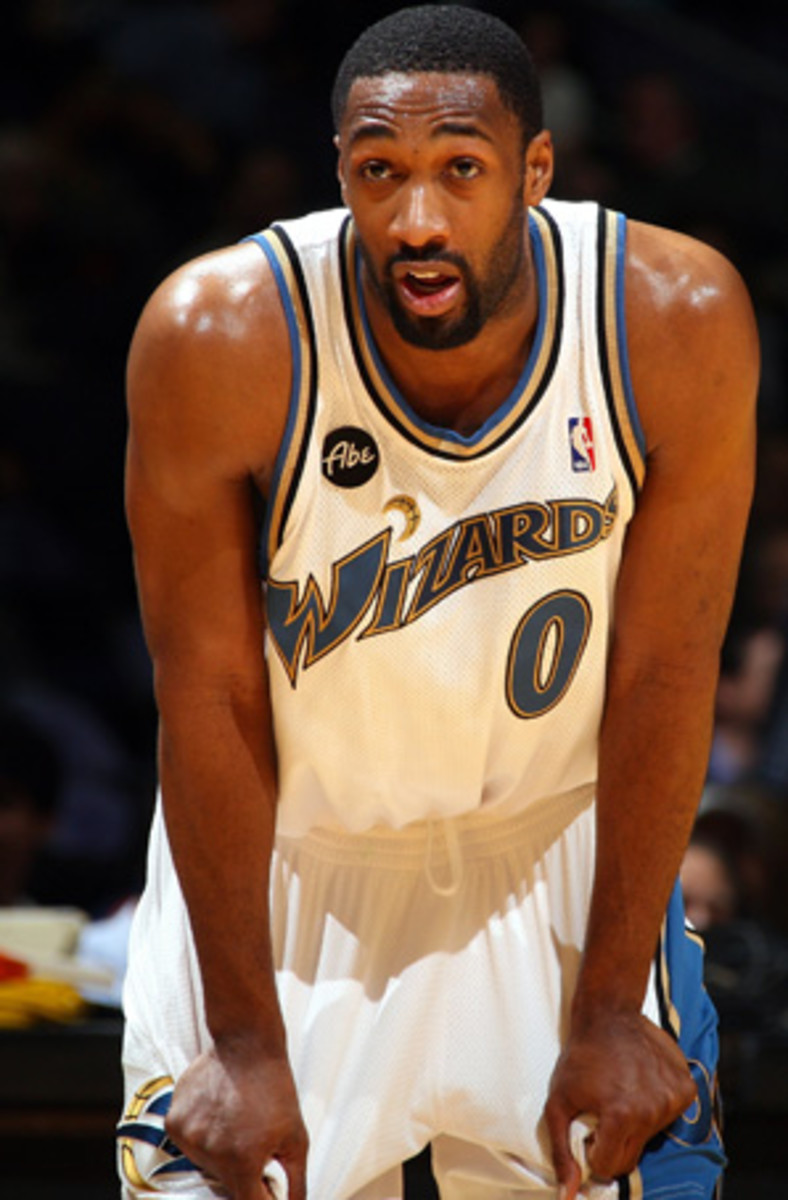Gambling among players is just part of NBA's high-stakes culture


When Mark Cuban bought the Dallas Mavericks, one of his first moves was to upgrade the team plane. So it was that he laid out nearly $50 million for a Boeing 757, flush with a weight room and facility for trainers to provide medical treatment. But the Mavericks' previous team plane had a unique feature as well: The front tire was painted in the manner of a roulette wheel. Why, you ask?
When the players boarded the plane for road trips, an employee handed them envelopes containing their per diem meal money in cash. For a road trip of decent length, that could come to more than $1,000 per player. The players then pooled their money, and each selected a number to correspond with the roulette-wheel numbers on the plane's front tire. When the plane finally landed and stopped at the airstrip, an attendant inserted a peg into the tire. If the peg ended up wedged into your number, you won the pot.
And the gambling didn't stop there. There was always the opportunity to earn your money back -- or lose more -- through card games, Madden video game competitions and shooting contests. Cedric Ceballos allegedly divorced a teammate from $50,000 by hitting a halfcourt shot. The teammate turned ashen -- not because he'd just lost more money than the average American will earn in a year, but because he had to figure out a way to discharge his debt without his wife finding out.
Another story from those teams (this one apocryphal, but we'll tell it anyway): One player, signed to a 10-day contract, was a particularly easy mark. When his contract was about to lapse, players appealed to management to keep him around, citing his positive contributions to the club. Management obliged. The player was picked up by another team the following season, and to this day, it's not likely that he knows that his NBA career might never have come to pass if he hadn't been such a lousy gambler.
Yes, well before an alleged card-game dispute between two Wizards -- a misnomer of the highest order -- metastasized into the first full-blown sports scandal of this young decade, intra-team gambling was already well-embedded in the culture of the NBA. Just consider the elements. You have a kennel of hyper-competitive alpha dogs, vast pastures of down time and wealth to the point of abstraction.
But there's also this element: complicity from the superiors. The card games and shooting contests aren't conducted in secret chambers. Coaches, and even executives, encourage or, at the bare minimum, tacitly permit the high-stakes wagering. At a time when team chemistry is increasingly elusive -- when players walk into arenas with their ears wrapped in headphones and walk out wrapped by their entourages -- these games of chance pass for a team-bonding exercise. I once watched a well-regarded coach end a practice with a shooting contest, standing sentry over the money at halfcourt. He remarked that he could actually learn a great deal about players' mental toughness by watching how they performed with money and pride on the line.
Naturally, sometimes these games can backfire and fray team bonds. Several years ago, a savvy Detroit player had allegedly cheated Jerry Stackhouse out of $2,000 in a card game. Stackhouse erroneously fingered Christian Laettner and cold-cocked him. Stories abound of Player X freezing out Player Y on the court, holdover aggression from a disputed wager or an unpaid debt. Several years ago, I wrote a short piece for SI on Aaron McKie, then a Philadelphia guard. Though one of the NBA's good guys, McKie boasted that he was supplementing his sizable salary with winnings at bouree, incidentally the same game that Washington's Gilbert Arenas and Javaris Crittenton were allegedly playing. "Shooting holes in their pockets," McKie said cackling. You couldn't help think that the losers, impliedly younger and less well-paid, probably didn't find it quite so funny.
Arenas and Crittenton, of course, took the gambling feud to new levels. While understandably lost in the discussion, one wonders what role the underlying power dynamic played. Crittenton, who turned 22 on New Year's Eve, was a little-known reserve making $1,477,920. It's hardly chump change but nowhere near the $16 million that Arenas, 28, was scheduled to earn this season. It's bad enough when someone owes you money and is slow to pay; it's worse when the debtor makes more than 10 times your salary.
In the wake of this Washington scandal, the New Jersey Nets have announced a ban on gambling while aboard the team plane. It sends the right message, but ultimately is unlikely to change the high-stakes culture. Until players lose their competitive jones, until they no longer have overnight wealth, until their superiors stop actively exhorting them to gamble... well, all bets are off.
